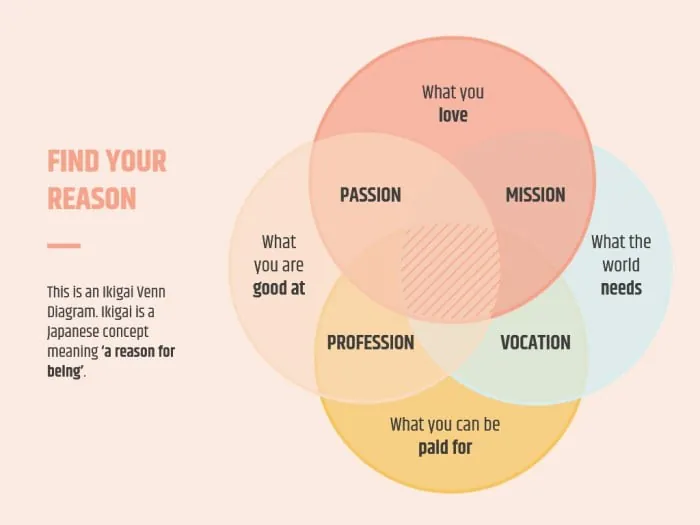Mentor Coach: Wendy Koh
12th Jul 2023
Eastern Ikigai (生き甲斐)
¥50,000 (about S$500). That’s the price of a handmade chef knife I saw in Japan ten years ago.
I asked my Japanese friend why the knife was so expensive. She said it was common in Japan to see such costly artisanal products. According to her, the knife smith has been in this trade for over 40 years. And for that particular knife, he took more than a month to do it.
The businessman in me straightaway concluded that it was a bad business decision. “How could someone survive on that income?” I asked in my heart.
My friend said many Japanese have adamantly pursued their passion for their trade for decades. To them, doing what they love and are good at comes before profits. Money is a by-product of their passion pursuit.
That was the first time I learnt about ikigai. To these Japanese, the relentless dedication to doing what they’re good at gives them a reason to live.
To the Japanese, ikigai’s focus is on being. It’s more like a noun.
Psst. Although I’m a sucker for craftsmanship, I couldn’t bring myself to buy that knife. It was only when I decided to pick up cooking three years later that I invested in two handmade Japanese chef knives. Please don’t ask me how much. All I can say is they’re not inexpensive. 😅
Western Ikigai
A few years back, the book Ikigai: The Japanese Secret to a Long and Happy Life appeared on my Amazon feed. I bought both the audio and ebook versions. I devoured it quickly.
The Venn diagram below shows a “summary” of what it’s about.

Other than the “What you love” circle, the Eastern and Western versions have nothing in common.
I might be wrong, but I guess the authors Héctor García and Heather Cleary added the other three circles for the Western audience. It’s like a foreign restaurant frequented by the locals can never be authentic because they have to cater to the local palette.
To these authors, ikigai’s focus is on doing. It’s more like a verb.
There’s no right or wrong here. It’s a matter of personal preference (and business acumen).
Purpose
Eastern or Western ikigai. It doesn’t matter. The coach’s job is to help the clients discover their “ikigai”, a.k.a., “purpose” – What drives them, what keeps them going, and what causes them to have a laser focus despite all distractions and inconveniences.
All the above sounds correct. Even romantic.
To me, ikigai is not about grandiose aspirations or something to impress the bosses or friends on social media. But it’s a state of being and knowing that I have something to wake up to every morning and say, “Yay! I’ve got another day to work towards what I love!”
This ikigai thing is a lifelong pursuit. And I shall make it my ikigai to help my clients discover their ikigai(s).
The Barking Cat
Have you ikigai-ed already?
